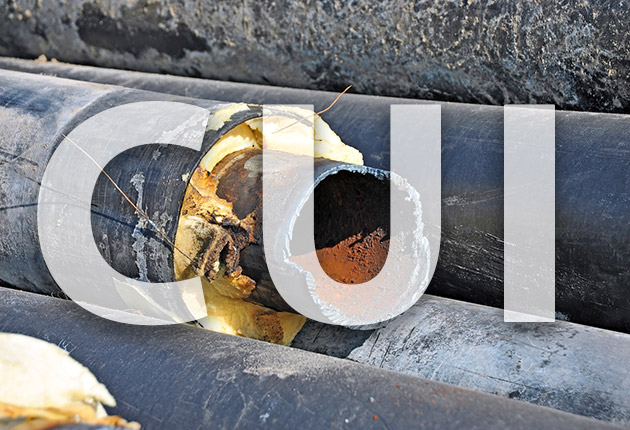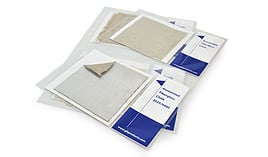Corrosion under insulation (CUI) is a severe form of localized external corrosion that occurs in carbon and low alloy steel equipment that has been insulated.
CUI itself is most commonly galvanic, chloride, acidic or alkaline corrosion. If undetected, the results can lead to leaks and the shutdown of a process unit or an entire facility, causing a war against corrosion!
Why it Happens
It occurs when water is absorbed by or collected in the insulation. The equipment begins to corrode as it is exposed to water and oxygen. CUI is common in refineries and process plants that typically operate equipment at high temperatures. Whether the moisture enters through cracks or holes in the insulation, the trapped moisture has the potential to cause rapid rusting and corrosion on the pipe's surface.
Most times corrosion goes unnoticed because the layer of insulation completely surrounds the pipe. However, when insulation is finally ripped off from the pipe, either for a scheduled replacement or to investigate an issue, facility managers will often time find the pipe to be completely ruined.
What to Do
As of now, there happens to be no magic solution. However, the most effective method of preventing the issue is to of course keep moisture from coming into contact with the unprotected metal surface. In addition, here are four tips to prevent CUI from occurring.
- Check piping under insulation often
- Choose the proper insulation for the project
- Seal insulation with care
- Most importantly, choose a high-quality and high-temp coating
CUI is one of the (petro) chemical processing industries worst problems. Great care needs to be taken in order to prevent the risk of accelerated CUI.


